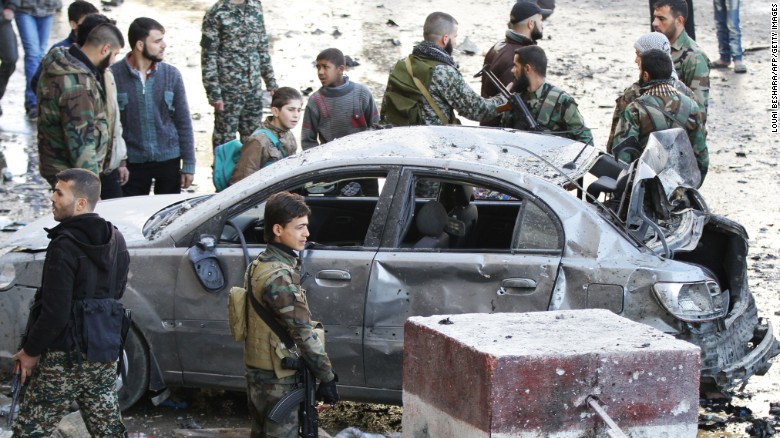
Irbid, Jordan – ISIS militants planned to strike civilian and military targets inside Jordan but were foiled by authorities, a government agency said.
A series of raids carried out Tuesday into Wednesday in Irbid, Jordan, led to the arrests of 13 people alleged to have been part of the plot, the state-run Petra news agency reported, citing the General Intelligence Directorate, Jordan’s national intelligence agency.
But that was just the beginning. Seven other alleged terrorists, wearing suicide belts and carrying automatic weapons, then attacked Jordanian security forces in the northern Jordanian city, which is 55 miles north of Amman and about 13 miles from the Syrian border.
That onslaught ended with all seven attackers killed, as well as one member of Jordan’s specialized security force. Two civilians and two security force members were wounded, government spokesman Mohammad al-Momani said on local radio.
This is a message to the whole world about this country’s ability to stand as a rock in the face of all attempts to attacks its security and citizens,” Momani said.
Prime Minister Abdullah Ensour initially called the group “outlaws.” But the General Intelligence Directorate later said they were part of a “criminal plot linked to ISIS.”
Their goal, according to the agency, was to “destabilize national security.”
U.S. warned of threat against high-end malls
This is hardly the first time Jordan has faced militant threats.
Last year, for instance, the U.S. Embassy warned about “a potential threat against high-end malls in Amman,” the Jordanian capital.
“Extremist groups have repeatedly expressed interest in attacking so-called soft targets, such as malls and restaurants, in Jordan,” the embassy said then in a statement. “U.S. citizens should expect to see an increased security presence at such establishments throughout Jordan, and especially in Amman.”
More recently, in January, the same U.S. Embassy noted that Jordanian authorities had disrupted several other plots.
The latest security operation seemingly marks another achievement for Jordanian authorities, as well as a harsh reminder of the terror that has long been lurking on the country’s doorstep.
Jordan part of anti-ISIS military coalition
Bordering Syria, Jordan has seen ISIS terror up close. After Turkey and Lebanon, it has taken in the most refugees — about 640,000 registered with the United Nations, though many more may actually be in the country — who fled the fierce fighting and brutal tactics used by many warring parties.
Violence spearheaded by ISIS has spilled over into many of these other places, like Turkey and Lebanon. Jordan has been among the region’s most aggressive in fighting back as part of the U.S.-led military coalition, though that participation has come with a cost.
The most high-profile example may have been ISIS’ burning alive of Lt. Moath al-Kasasbeh, a 27-year-old Jordanian fighter pilot who was captured after his aircraft crashed in December 2014 during a mission in Syria.
Jordan responded to Kasasbeh’s killing by executing two prisoners — Sajida al-Rishawi, whose release ISIS had previously demanded as part of a prisoner exchange, and Ziad Karbouli, a former top aide to the late leader of al Qaeda in Iraq, Abu Musab al-Zarqawi. And the pilot’s father called for Jordan to do even more.
“His blood is more valued than Sajida al-Rishawi and Ziad Karbouli,” Kasasbeh’s father, Safi, said of his son. “I demand that revenge should be bigger than executing prisoners.”
As reported by CNN
